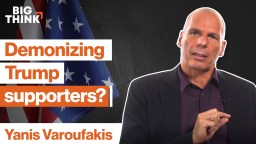news
The independent news collective is teaching a new generation of journalists and citizens to spot the stories in plain sight.
New research from MIT is unintuitive but could lead to a better system.
Most people believe you can win an argument with facts – but when “facts” are so often subject to doubt, are personal experiences trusted more?
Google’s “Year in Search 2020” results reveal a year when “why” was searched more than ever.
How to deal with “epistemic exhaustion.”
Confirmation bias is baked into the DNA of America, but it may soon be the nation’s undoing.
▸
25 min
—
with
People remember when governments lie to them and it lowers their satisfaction in government officials.
New research reveals the extent to which groupthink bias is increasingly being built into the content we consume.
Mexico City, already progressive, takes more steps to protect its LGBT+ citizens.
State and local governments are hiring contact tracers to contain the spread of novel coronavirus.
There are ways to engage with someone with whom you don’t agree.
▸
4 min
—
with
Beyond Meat and Impossible Foods find a greater foothold in the market as demand for plant-based meats rises.
Ad Fontes Media wants to educate readers on where to find reliable sources of news and lessen the heat from the political flame wars.
The photos may not be fake, but the context is.
It’s the first American news channel to focus on African-American experiences.
Trump’s Middle East peace plan contains the first map of a Palestinian state that ‘Israel can live with’.
If you understand when and how to ask questions, you possess an effective inoculation against charlatans.
▸
4 min
—
with
The new strain of coronavirus that has spread across Asia is causing concern ahead of China’s Lunar New Year.
Research has found that previously encountered information feels more “fluent.”
More than ever before, we’re aware of the tragedy and suffering that goes on in the world. But does that mean we can do more about it?
▸
4 min
—
with
Following two deadly crashes, the FAA has been engaged in a lengthy review process of the Boeing 737. With recent news that the review may continue into 2020, Boeing has opted to halt production of the plane.
“They” has taken on a not-so-new meaning lately. This earned it the scrutiny it needed to win.
Going from a solitary teenage protester in front of the Swedish parliament to a global icon in little more than a year certainly merits a distinction.
The Internet Research Agency has learned that you catch more flies with honey than with vinegar.
Nearly anything political is now branded with a catchy hashtag.
The social media company’s recent transparency report claimed that it had taken down a staggering number of fake accounts — but it’s unlikely they’re catching them all.
In a metaphor too apt to be made up, the council has been forced to relocate until the flood waters recede.
Is anything clear in the age of disinformation?
▸
3 min
—
with
As it turns out, hacking an election isn’t as hard as you’d think.
How can Innovation Central not manage to solve its own sprawling homelessness?





























